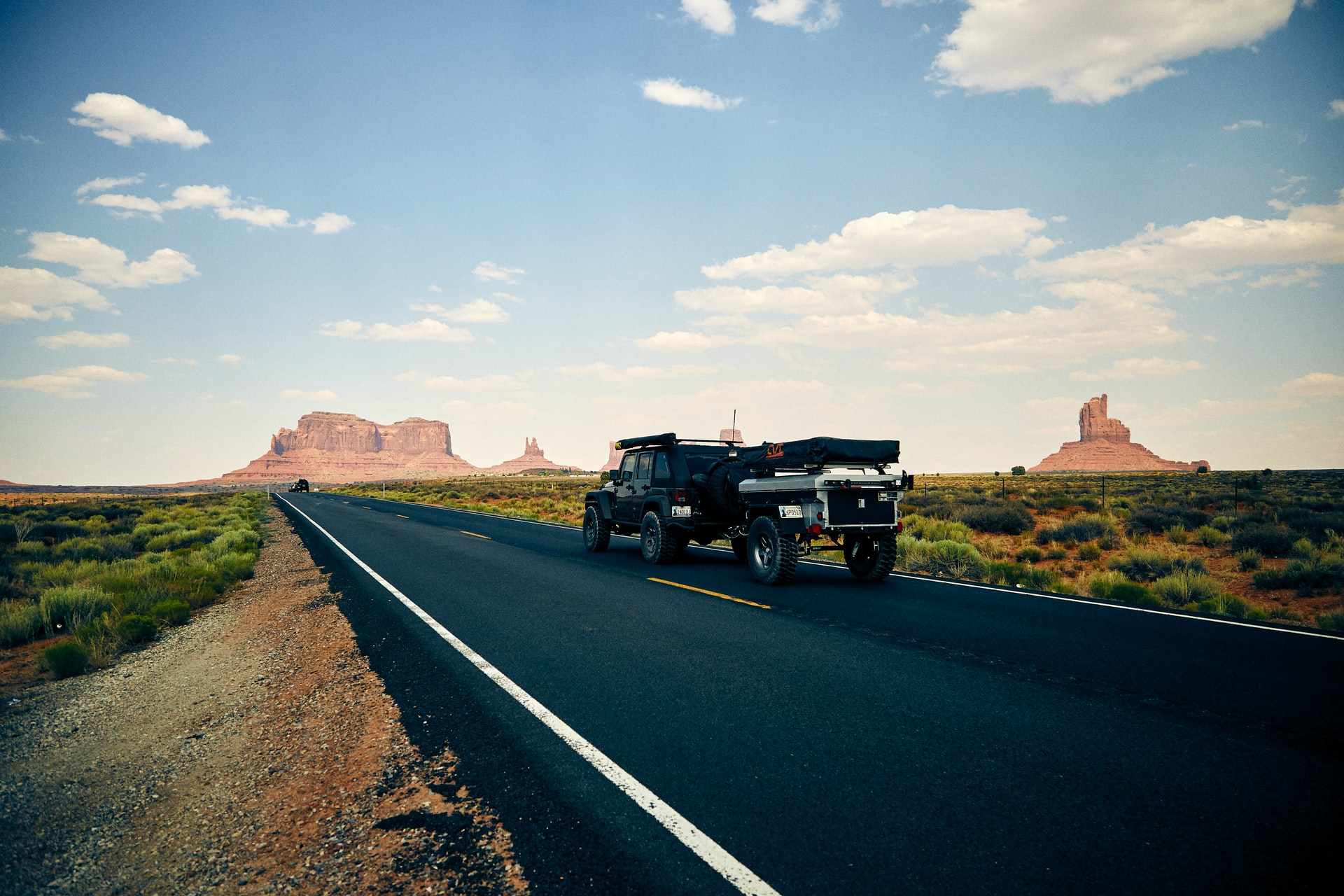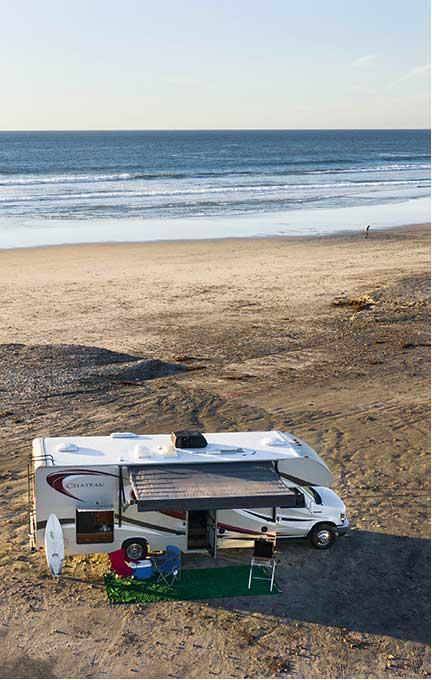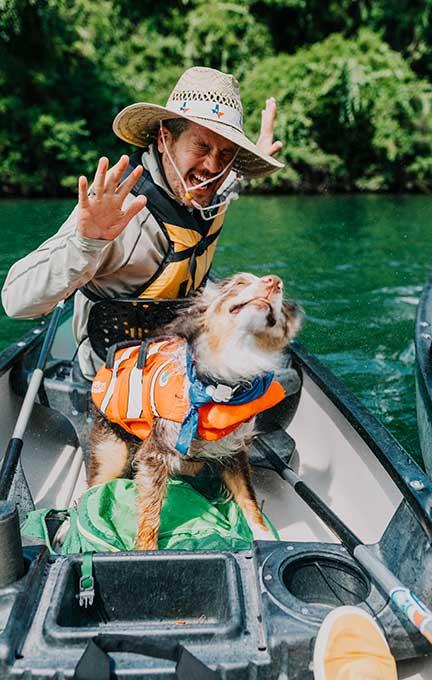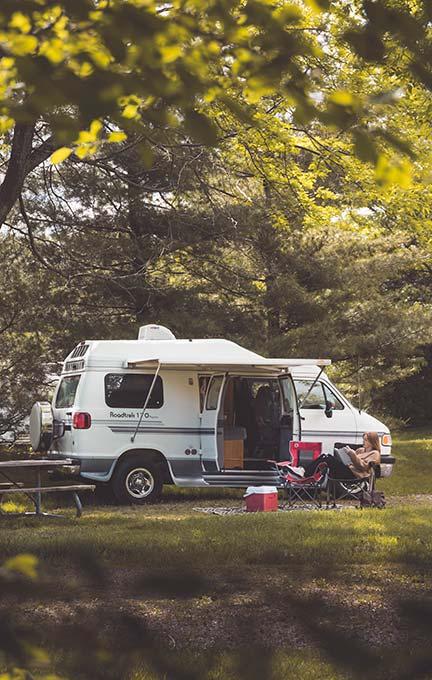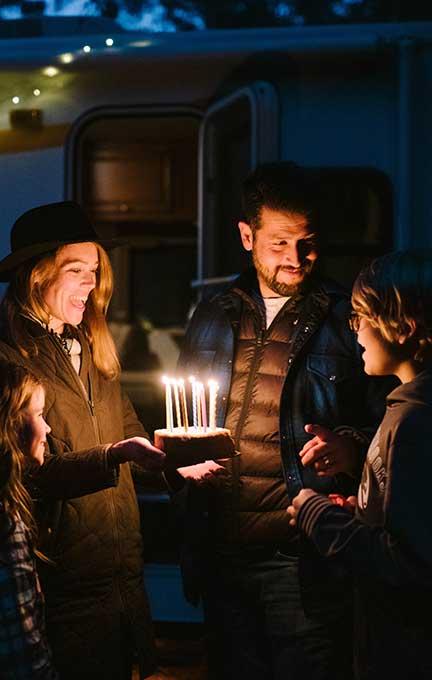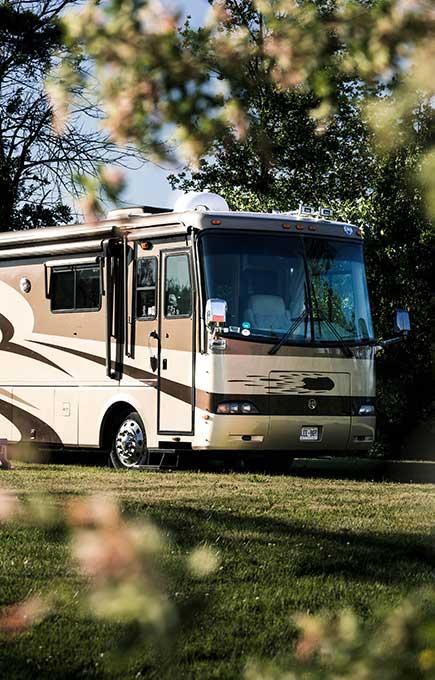As a new RVer, the number of things to learn about your new home on wheels can be overwhelming. Luckily, it’s pretty easy to learn as you go, especially if you do a little research ahead of time. Here at Outdoorsy, we want to help our renters and owners have the best experiences possible. While most parts of RVing are fun, there are some aspects that aren’t so glamorous, like dumping the RV black water tank.
Like everything else in life, all you need is a little practice. Dumping your RV black water tank may be tricky at first, but after a few times, you’ll get the hang of it!
And if you want to try before you buy – check out our guided search to find the right RV rental for you.
RVs For Rent Near You
What is an RV black water tank?
It sounds ominous, but it’s not that scary! The black water tank is one of three tanks you likely have on your RV.
- Black water tank: This holding tank holds the waste from your toilet.
- Grey water tank: The RV grey water tank is also for used water, but from your sinks and shower. While most RVs have a separate grey water tank, some will only have a black water tank in which all waste collects.
- Freshwater tank: As the name suggests, your fresh water tank holds your clean potable water that comes out of your sinks, shower, and toilet.
The black water tank is the most icky since it holds the sewage. Here’s how to dump it safely without making a mess.
Common Mistakes to Avoid When Dumping Your RV Black Water Tank
Properly managing your RV’s black water tank is crucial for maintaining hygiene and ensuring a pleasant travel experience. However, beginners often make mistakes that can lead to unpleasant situations. Here are some common pitfalls to avoid:
- Not Wearing Protective Gear: Always wear disposable gloves to protect yourself from direct contact with waste materials.
- Using the Wrong Hose: Ensure you’re using a designated sewer hose, not your freshwater hose, to prevent contamination.
- Skipping the Flush: After emptying the tank, rinse it thoroughly to prevent residue buildup and odors.
- Leaving the Valve Open: Keep the black tank valve closed when not dumping to avoid solid waste buildup and potential clogs.
How to Dump Your RV Black Water Tank
You’ll always want to start your black tank dump by going to a designated dump station. These can be found in almost all commercial campgrounds and most national and state parks. You may also have a sewer hose attachment site at your campsite if it has full hook-ups. Never try to dump your waste somewhere it isn’t meant to go!
List of Equipment Needed to Empty Black Water Tank
- Sewer hose with attachments (make sure hose has no holes in it)
- Garden hose (not your freshwater hose)
- Disposable gloves
- Clear sewer hose elbow with an angle (45 or 90 degrees) for your particular system. This part is optional, but can be helpful.
Step 1: Identify Your Gate Valves
Your first mission, should you choose to accept it, is to identify the grey water and black water gate valves on your trailer or motorhome. Every RV has a different setup, but these valves will most likely be located close to where your freshwater is hooked up. Here’s what it may look like. We’ve labeled them so you can look for something comparable in your RV.

In most motorhomes, the black water tank pipe is larger than the gray water, but that is not always the case. Most are labeled and have a handle to pull the valve open and push it closed.
You’ll notice that the two valves are located close to where the plumbing for both tanks come together. There is a lid below the valves. This is where you will hook your sewer hose. Before you take that lid off make sure both gate valves are closed! Then rotate the tank lid clockwise (off) and set the lid aside.
One other important note is to make sure your air vent in the bathroom is closed and turned off when dumping the tanks. Otherwise, you will be pulling some odors that aren’t too pleasant through the bathroom, and they won’t dissipate very quickly.
Step 2: Hook Up Your RV Sewer Hose
Because ‘crap’ flows downhill, make sure the sewer hose attachment site is uphill from where the sewer hose will dump its contents (at a dump station or septic tank). Many RVers with full hook-ups (meaning they have electricity, water, and septic) at a campsite use a sewer hose support to create a downward slope to the sewer dump.
If you have one, attach your 45- or 90-degree clear sewer hose elbow to the “RV” end of your sewer hose, then hook the hose to the plumbing below the gate valves in your RV where the tank lid came off. Once your hose is attached, put the other end in the dump station or septic hole at your campsite. If you can, secure the end of the hose with a rock or heavy object to keep it from dislodging mid-dump.

Step 3: Open the Valves
Now you are ready for the action! Open the black tank valve and let it completely empty through the hose into the sewer. You’ll know it’s finished by looking at the clear elbow attachment or when you hear the flow stop.
When the blank tank is empty, close the black tank gate valve. Next, open the gray tank valve and let it empty as well. By emptying the black tank before the gray tank you are, in effect, helping to clean the sewer hose with the shower and dishwater stored in the gray tank.
Step 4: Clean the Black Water Tank and/or Hose
Once both tanks are empty, close the gray tank gate valve, then you can do one of two things:
Clean the Black Water Tank
If you have a clear elbow attachment with a sewer tank rinser (the hose attachment you see in the image above), then attach a garden hose to it (NOT your freshwater hose), open the black tank gate valve and turn on the hose to rinse the inside of the black tank. Close the valve when water runs out clean to the septic, open the gray tank gate valve and clean that tank, as well. Here’s a great video to show you exactly how it works:
Rinse Out the RV Sewer Hose
If you do not have a sewer tank rinser on your elbow attachment, it’s still important to clean out your sewer hose. Make sure both tank gate valves are closed and unhook the sewer hose from the RV. Leave the other end in the sewer hole at the dump station or campsite. Rinse the inside of the hose thoroughly with a garden hose (again, NOT your freshwater hose).
Step 5: Pack Up
When your sewer hose is clean, collapse it and put it in a plastic trash bag or in your sewer hose storage compartment. Put the tank lid securely back on the plumbing outlet in your RV. Store your garden hose away from your fresh water hose. And, of course, always be sure to wash your hands thoroughly.
Tips for Maintaining Your RV’s Black Water Tank
Regular maintenance of your RV’s black water tank extends its lifespan and ensures a trouble-free experience. Implement these tips to keep your system in top condition:
- Use RV-Safe Toilet Paper: Opt for biodegradable toilet paper designed for RVs to facilitate easier breakdown and prevent clogs.
- Regularly Add Tank Treatments: Utilize enzyme-based treatments to break down waste and control odors effectively.
- Monitor Tank Levels: Keep an eye on your tank’s fill levels to prevent overflows and plan timely dumps.
- Schedule Deep Cleans: Periodically perform a thorough cleaning of the tank to remove any lingering buildup and maintain optimal function.
Here’s the revised FAQ section with questions formatted as H3 tags:
FAQs For Dumping an RV Black Water Tank
See below for answers to commonly asked questions about RV black tanks.
What is a black water tank in an RV?
The black water tank in an RV is where waste from the toilet is stored. It holds liquid and solid waste until it is safely dumped at a designated sewage disposal site.
How often should I dump my black water tank?
The frequency depends on the size of your tank and the number of people using it. On average, you should dump your black water tank when it’s about two-thirds full, typically every 3-5 days during regular use.
Can I dump my black water tank at home?
Sometimes, yes, but it must be done responsibly and in accordance with local regulations. You can connect your sewer hose to your home’s septic system clean-out or sewer connection.
Be sure to confirm with local regulations and double check your sewer/septic system in advance of trying this.
What happens if I don’t clean my black water tank regularly?
Neglecting to clean your black water tank can lead to unpleasant odors, waste buildup, and potential clogs that may damage your plumbing system. Regular maintenance is crucial for optimal operation.
Are there any special tools I need for dumping my black water tank?
Yes, you’ll need:
- A designated sewer hose.
- Disposable gloves for hygiene.
- A tank rinser or wand for flushing out residue.
- Tank treatment chemicals to manage odors and waste breakdown.
What’s the difference between a black water tank and a gray water tank?
The black water tank collects waste from the toilet, while the gray water tank holds wastewater from sinks and showers. They are separate systems but require similar care and maintenance.
Can I use bleach to clean my black water tank?
It’s not recommended, as bleach can damage seals and gaskets in your plumbing system. Use RV-safe cleaning solutions or enzyme-based treatments instead.
Is it okay to leave the black water tank valve open while camping?
No, leaving the valve open can cause solid waste to accumulate, leading to clogs. Always keep the valve closed until you are ready to dump the tank.
Where can I find designated dump stations?
Many RV parks, campgrounds, truck stops, and rest areas have dump stations. You can also use apps like Roadtrippers or Campendium to locate nearby facilities.
Back to Business as Usual
Now that your tank is dumped, you can go back to business as usual until it’s time to dump again. If you follow these directions, you’ll be able to get it done in about 5 minutes without ever messing with the ‘crappy’ side of life! Now there’s absolutely no excuse not to rent an RV from Outdoorsy and explore more of the camping lifestyle.

